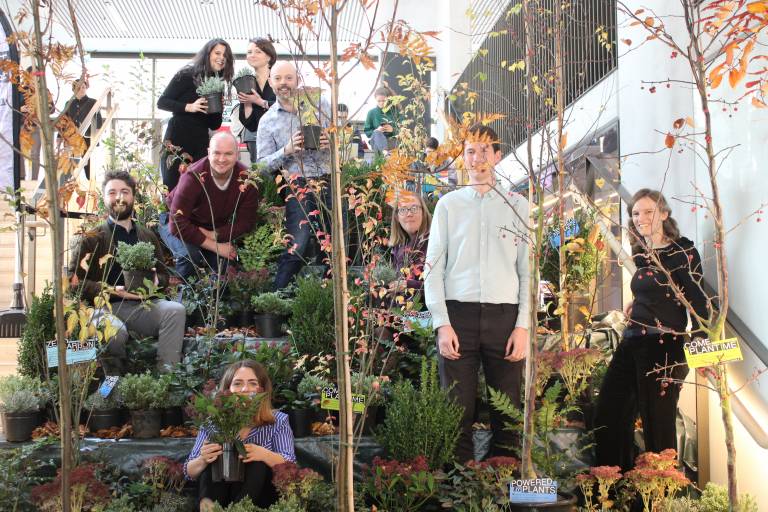How can we reduce the environmental impact of our research?
By qtnvphi, on 3 April 2023

As most people are aware, energy prices have been and could be still increasing. This is putting a direct financial pressure on any energy intensive operation, and scientific research can require a lot of energy.
At UCL, science facilities are responsible for about half of our energy consumption, and up to half of our overall carbon emissions. Within the Faculty of Brain Sciences (FBS), which conducts world-class research, these pressures are even greater.
So what can be done to mitigate our energy consumption, and reduce the environmental impact of our research, particularly without losing any of the benefits of our work?
In the Faculty, we see that there has been sector-leading efforts to address our sustainability. FBS has a senior committee tasked with addressing our sustainability. Members of this committee crucially include both academics and operations managers, ensuring all aspects of our work are considered.
This committee helped ensure that 100% of our laboratories participate within UCL’s LEAF programme, which aims to provide a standard in sustainable operations for labs like ours. Achieving this target meant engaging the entire Faculty, and has led to some significant wins, like improved sample tracking of departing staff to avoid build-up.
We also have used this committee to engage our academics on their ultra-low freezer temperatures, as changing the temperature from -80C to -70C will save 30% of the energy of the average UK home.
Looking ahead, the Faculty has been leading a programme of freezer replacements. To ensure that this programme will be as beneficial as possible to the planet, the embodied carbon of manufacturing and disposing the freezers was considered alongside energy efficiency.
This ensured that energy savings won’t come at the cost of manufacturing impacts. We targeted labs also which could replace two freezers with one, so that both energy and space requirements would be significantly decreased.
And looking even further ahead, we are participating in innovative research assessing the full carbon emissions of biobanking methods. This research will look into the full carbon emissions of our cold storage methods within the Dementia Research Institute, and assess how the move into a new facility can be as sustainable as possible. Look out for the research to be published later this year.
We face many increasing challenges, not least of which is that of our environmental sustainability. We hope to continue to contribute to addressing UCL’s sustainability goals, but also continue to drive leading research.
A perfect example of when those two efforts combine can be seen in the output of our very own Professor Sanjay Sisodiya. Professor Sisodiya studies how climate change can directly impact human health, and in particular how increased pollution levels can trigger variations in neurophysiological patterns and increases in epileptic seizures.
Such research is vital for both better understanding as well as highlighting why the actions we take as a Faculty are so important. We hope to lead – both in reducing our emissions while improving our knowledge surrounding the impacts and how to mitigate them. If you’re in FBS and interested in joining our committee, please contact John Draper (j.draper@ucl.ac.uk), or visit our web pages to learn more about how you can contribute to our shared initiatives.
 Close
Close

